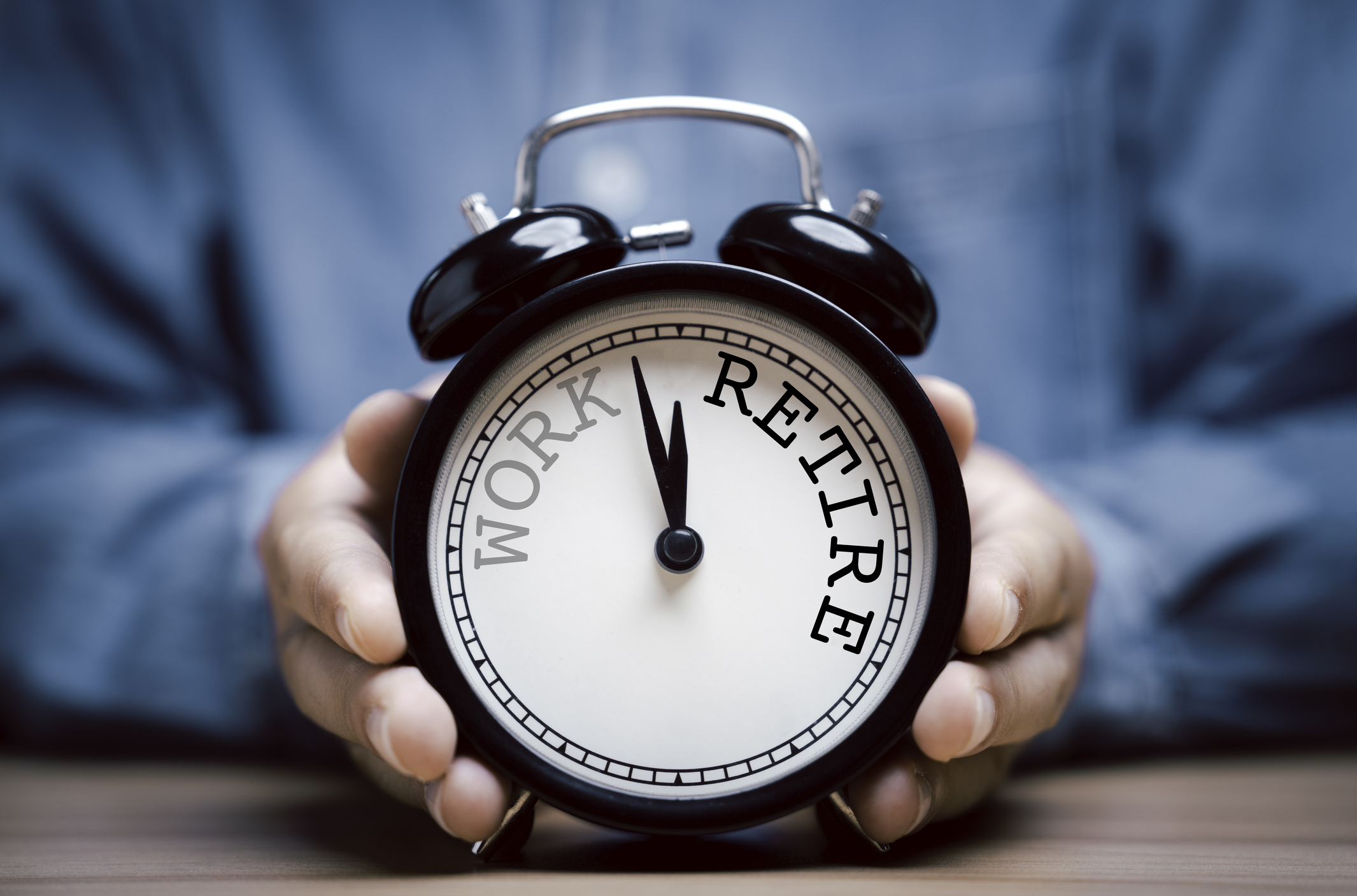Workplace pension schemes: how do defined benefit schemes differ from defined contribution ones?
UK workplace pension schemes come in two forms: defined benefit and defined contribution. But what's the difference between them?

Henry Sandercock

Get the latest financial news, insights and expert analysis from our award-winning MoneyWeek team, to help you understand what really matters when it comes to your finances.
You are now subscribed
Your newsletter sign-up was successful
Want to add more newsletters?

Twice daily
MoneyWeek
Get the latest financial news, insights and expert analysis from our award-winning MoneyWeek team, to help you understand what really matters when it comes to your finances.

Four times a week
Look After My Bills
Sign up to our free money-saving newsletter, filled with the latest news and expert advice to help you find the best tips and deals for managing your bills. Start saving today!
While a decent wage and good hours are what we tend to look for in a job, the workplace pension scheme on offer should also be a key focus.
With the cost of a decent retirement on the up, and uncertainty over the future of the state pension, it's becoming more important to think about the sort of pension deal you're getting from your employer.
Under auto-enrolment rules, companies have to sign up most of their staff to a workplace pension scheme. The vast majority of these arrangements are what are known as defined contribution (DC) pensions. They involve the employee putting in 5% of their wage, and the company they work for topping this up by 3%. This is a minimum, so some firms pay in more than this.
MoneyWeek
Subscribe to MoneyWeek today and get your first six magazine issues absolutely FREE

Sign up to Money Morning
Don't miss the latest investment and personal finances news, market analysis, plus money-saving tips with our free twice-daily newsletter
Don't miss the latest investment and personal finances news, market analysis, plus money-saving tips with our free twice-daily newsletter
But the public sector – and a small number of private sector firms – still offer defined benefit (DB) schemes. So, what is the difference between these two types of workplace pension scheme, and what will you be entitled to when you retire? Here’s everything you need to know.
What is a workplace pension?
A workplace pension is a tax-efficient savings vehicle that allows you and your employer to invest for your long-term future. The main goal of the pension is to provide you with money to live off in later life, usually once you have retired from employment.
All pensions associated with a job fall under either the DB or DC umbrella. Understanding the difference can help ensure you are better prepared for your retirement.
What is a defined benefit (DB) pension?
If you have a defined benefit pension, then you will be paid a specific income when you retire for the rest of your life. In other words, you will have a guaranteed – or defined – benefit to look forward to. The amount you get will normally be based on how long you've worked for your employer, as well as what salary you've been on.
So, for example, let’s say that for each year of service, you get 1/60th of your final salary. If you work for that employer for 40 years, you will have an annual pension that is two-thirds of your salary. This sort of pension provides certainty for your retirement, given you know exactly what you'll be getting each year.
Note that there are two types of DB scheme: final salary, and career average. The final salary version is usually more generous (as people typically earn more as their career progresses), and is often referred to as “gold-plated”.
You usually start receiving the income as monthly payments when you reach state pension age. The payments normally increase each year in line with inflation.
Sadly, this type of pension is a dying breed. Not only do we all tend to move jobs more frequently than in the past, but the drain DB schemes have on company finances are making them increasingly unpopular among businesses.
This kind of pension is also complex and requires a significant degree of actuarial oversight. This is needed to ensure that the investment strategies used by employers or the schemes themselves will deliver the necessary sums to meet their liabilities – both present and future.
All of the risk lies with the employer. It can offload it elsewhere to some extent, but the important distinction to note is that you do not shoulder any risk, even though you are a beneficiary.
Most DB schemes still in operation are closed to new members, while some have closed entirely due to the costs involved. According to The Pensions Regulator, only 4% of the remaining 5,000 private sector DB schemes are open to new members.
What is a defined contribution (DC) pension?
Most employees working today will have a defined contribution scheme at their workplace. There were 26.4 million DC pension scheme members in 2023, up from 2.4 million in 2012, according to the trade body Pensions UK.
With this sort of pension, the size of your future pot will depend on how much money you and your employer pay into it over the course of your career, as well as the return the money makes.
In other words, there are no guarantees about how big your pot will be by the time you retire. This can be problematic given most of us aren't putting enough away to live comfortably in retirement.
DC pensions work like a regular investment pot, albeit with some tax relief and also a restriction on when you can access it. You can typically withdraw the money from age 55 (rising to 57 in 2028). There’s more flexibility in terms of how you take the cash compared to a DB scheme. With a DC pot, you can buy an annuity, take regular income or make ad-hoc withdrawals.
One of the main similarities between a regular investment pot and a DC scheme is that the risk sits with you. You’re responsible for contributing to the pension pot and choosing and monitoring the investments.
If you have a DC pension with your current employer, under the current auto-enrolment rules (unless you opt out), workers are required to contribute at least 5% of their salary, which is then topped up by 3% from the employer.
This is only the minimum total contribution, and some employers and employees contribute more. If you're a high earner, it can be particularly tax-efficient to pay more into your pension, given you could benefit from tax relief of up to 45%, and there is no longer a pension lifetime allowance.
Which kind of pension is best?
On paper, a defined benefit scheme, with its promise of a guaranteed, inflation-linked income, is almost always the more generous pension scheme.
Moreover, a DB scheme offers security as payouts are guaranteed for the rest of your life. These pension schemes are highly sought-after, making them a valuable part of a remuneration pack for any employee.
But that’s not to say DC pensions can’t also be a useful part of retirement planning.
You can access the money in a DC pot earlier than with a DB plan. They are also more flexible. For example, you could choose to take out a big withdrawal early in retirement, to pay for home improvements and a nice holiday. Then, once you start receiving your state pension, you could reduce the income you take from your DC pension. In contrast, the income a DB scheme pays out is fixed; and the scheme member cannot change it.
You also have the freedom to leave any remaining DC pension to whoever you want when you die. With a DB pension, an income is only paid out to a spouse, civil partner or financial dependent.
Get the latest financial news, insights and expert analysis from our award-winning MoneyWeek team, to help you understand what really matters when it comes to your finances.

Ruth is an award-winning financial journalist with more than 15 years' experience of working on national newspapers, websites and specialist magazines.
She is passionate about helping people feel more confident about their finances. She was previously editor of Times Money Mentor, and prior to that was deputy Money editor at The Sunday Times.
A multi-award winning journalist, Ruth started her career on a pensions magazine at the FT Group, and has also worked at Money Observer and Money Advice Service.
Outside of work, she is a mum to two young children, while also serving as a magistrate and an NHS volunteer.
-
 RICS: UK housing market showing signs of 'tentative recovery'
RICS: UK housing market showing signs of 'tentative recovery'RICS members are becoming less negative about property sales and house prices. What does the latest data mean for the property market?
-
 Last chance to invest in VCTs? Here's what you need to know
Last chance to invest in VCTs? Here's what you need to knowInvestors have pumped millions more into Venture Capital Trusts (VCTS) so far this tax year, but time is running out to take advantage of tax perks from them.